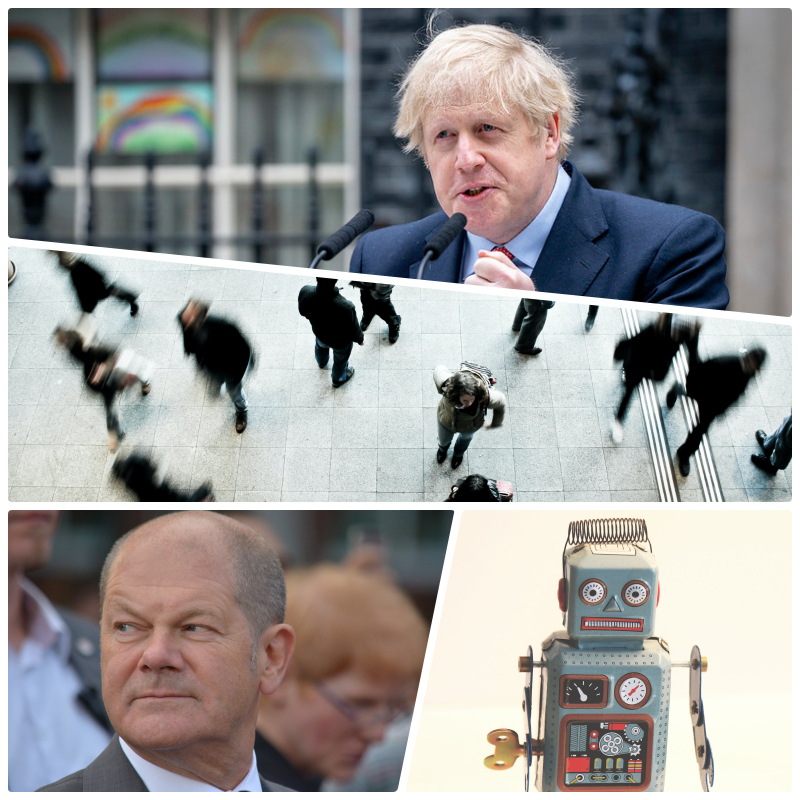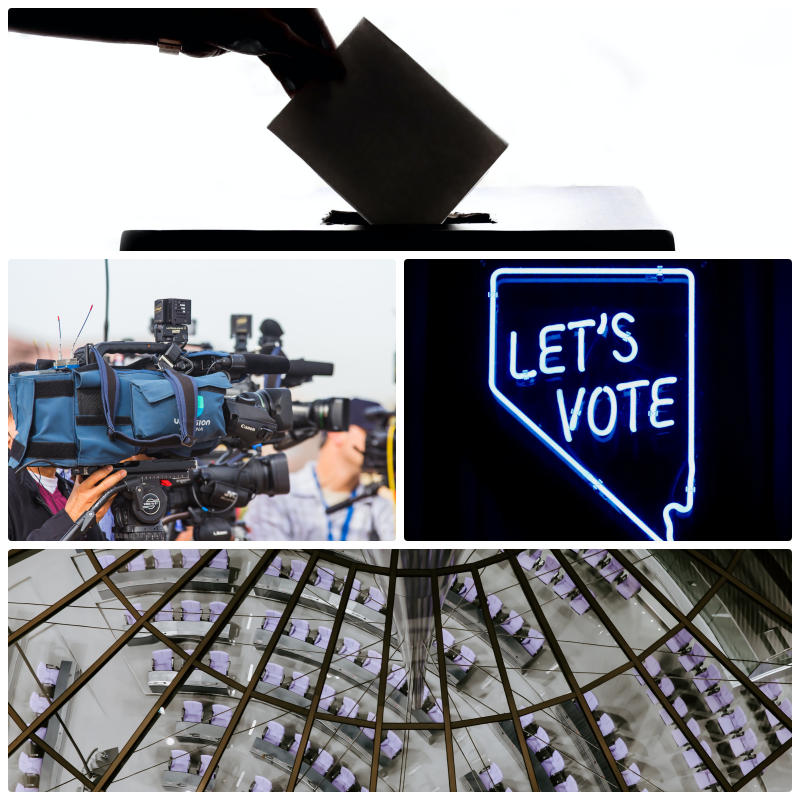Face of the Nation
Can you judge a country based on its leaders? It’s tempting to believe so, after all who didn’t look at Donald Trump’s boorish, xenophobic and nepotistic presidency and suspect it was simply a manifestation of everything we all knew about the US? Certainly not the numerous commentators in the German media, many of which spent those years psychoanalysing from afar and concluding that Trump was the real America personified. The same is true for Boris Johnson in the UK. He sounds, acts and looks exactly the way many Germans see the British. He’s in parts funny, confusing and superficial, the perfect combination of perceived British traits. Johnson is the truest example of the British, he personifies the upper class bumbling that made Dinner for One so popular, while also producing enough slapstick moments to remind Germans of their other favourite British import, Mr. Bean.
In fairness to Germany, they aren’t the only ones making assumptions about entire populations based on who the elect to high office. When Olaf Scholz managed to gain the most votes in last year’s election, many English speaking media outlets took one look at him, stroked their chins and declared “Yep, that tracks”. Regardless of the reality, many in the English speaking world still see Germany as the nation of cold, calculating efficiency. It doesn’t matter that Germany builds airports like a small child builds Duplo sets, it takes far more than evidence and facts to shake a stereotype. It also helped that the newly minted Chancellor Scholz was considered robotic even by German standards.
The fact that the new chancellor has long held the nickname “Scholzomat” is telling. He’s part man, part machine, but mostly he’s machine, and a particularly boring machine at that. If he has any charisma, he seems to be saving it up for a rainy day. As for humour, well, the less said about that the better. Either he had his funny bone extracted to make way for more RAM or his jokes are so dry we should start a petition to gift him some industrial strength moisturiser. Either way, he’s the perfect German leader, at least in the eyes of English speaking commentators. He’s everything they think they know about Germany.
Although the idea of Germany electing a Robo-Chancellor is quite funny, there is a measure of jealousy mixed with the giggling. After all, it’s better to have a robot than a clown in office and not the funny kind of clown either, the kind that lives in the basement and eats your pets. If Scholz embodies a certain perception of Germany, then surely Boris Johnson embodies everything British? Perhaps. Johnson is a very particular type of British product. For hundreds of years, Britain produced thousands of Boris Johnsons and sent them off to govern the empire. These were men made of the right stuff, namely tremendous privilege, and imbued with superhuman levels of confidence, which would be used to either subdue unruly subjects, extract enormous amounts of wealth or simply die heroically riding a horse at full tilt into a cannon. However, there are no longer colonies to govern, so instead of committing crimes abroad, we elect these post-imperial cretins to the most important positions of government.
However, this isn’t the full story. Boris Johnson may be perceived as very British, but the unravelling of his premiership tells us a lot about whether he really can stake a claim to be leading “a people’s government”. Brexit for many years masked the gradual impoverishment of British political morals. It was a zero-sum game, and it was fought with ferocity, mostly after the actual referendum occurred. Yet, the worst lies and excesses of the Brexit supporters in the media and within the political establishment were acceptable to the majority of voters in order to, as the 2019 Tory election slogan stated, “Get Brexit Done”. Yet, Brexit has come, gone and returned more times than a severe case of E.Coli and every time it returns, its ability to hide the purification is reduced. Now it barely covers the corpse that was once civil discourse. Had the pandemic hit a few years earlier, I would not have been surprised to see Johnson at the dispatch box claiming that his administration were allowed to break Covid lockdown because it was the only way to defeat those sneaky Europeans and fend off the advances of the Remainer 5th column. The fury with which every revelation about lockdown breaking parties is met suggests the morals of the British electorate have not been entirely eliminated by the debilitating Brexit years.
If Boris Johnson only represents a certain type of Britain, then perhaps the assumptions made about Germany’s replicant-in-chief are also wide of the mark. Olaf Scholz may have presented himself as the continuity candidate after Angela Merkel decided to step-down, but he is far from untarnished. There are few active modern German politicians that have as much suspect baggage as the current Chancellor. Even a cursory search of his past will bring up numerous accusations relating to torture, financial corruption and overly aggressive policing, much of which stems from his time as the mayor of Hamburg. Given that the average German takes a dim view of rule breaking and everyday corruption, let alone violating human rights, Chancellor Scholz may not be as representative as first appears. Then again, it has been suggested that as many as 4 out of 5 Germans believe that corruption isn’t being tackled effectively, while 62% feel that private interests control government. Just like Boris Johnson, Olaf Scholz’s history isn’t news, it’s fairly well known, and yet voters still went to the polls and elected them both, although in the case of Scholz, as part of a coalition.
Some democratic purists say you get what you vote for. This is true to some extent, but in the case of Olaf Scholz and Boris Johnson, voters aren’t electing politicians based on their ability to reflect a national stereotype. Nevertheless, once elected, leaders become the face of a nation and therefore come to be seen through whatever distorted lens the rest of the world sees that nation. Chancellor Scholz and Prime Minister Johnson probably aren’t representative of the entirety of their countries, yet they do represent them, at least until the next candidate appears to take their place.
Image Credit
Photo by Rock'n Roll Monkey on Unsplash
Photo by Timon Studler on Unsplash







